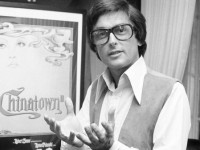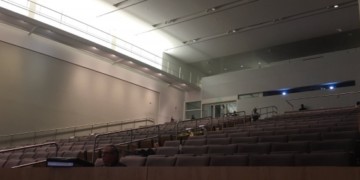Andrew CurryBlockedUnblockFollowFollowingNov 28
My 2017 article The City, The Country and the New Politics of Place, published in the Journal of Futures Studies, has recently won an award this year from the Association of Professional Futures as a Most Significant Futures Work. My company, Kantar Consulting, asked me to write a shorter version for its website, which I’m also republishing here.
Across multiple elections in different parts of the world, three social factors are the best predictors of voting intention. The 2018 American mid-terms are only the most recent data point. Voters who are more urban, better educated and younger tend to be more progressive.
This represents a deep shift in politics, and deep shifts do not happen without good reason. There are several overlapping systems at play. The first is a cultural shift, and the long, slow arrival of ‘post-materialist’ values. This was first heralded in the counter-cultural movements of the 1960s and 1970s, and people holding such values — around autonomy, self-expression and creativity — now represent around half of the population in in richer markets, slightly lower in emerging markets.
The second factor is about the re-integration of Asia, particularly China, into the global economic system, with extended supply lines and new centres of manufacturing.
The revitalised city
The third is about the revitalisation of the city, especially in America and Europe, over a 40-year period. And the fourth, which is related, is about the growth of the service sector over the same period (from around 50% to around 70–80% now). This has gone hand in hand with the development of higher value economies around the production of knowledge and the development of new types of service work to support this.
The cultural shift has been well-documented by social researchers. A couple of markers are that younger voters are less likely to support authoritarian values, and are less hostile to immigrants. The converse attitudes (pro-authoritarian, anti-immigrant) are a better fit with voting data around populism than explanations related to economic inequality.
Where economics does matter is in the impact on expectations in those geographical areas that have been blighted by the decline (or export) of manufacturing sectors. In the UK and the US, this can be summarised as a sense of fearfulness. In particular, they appear to have lost faith in the idea of progress, and no longer believe that their children will have a better life than they do.
The third factor — the return of the city — is a result of the ICT revolution. Despite the 1990s predictions of “the death of distance,” in practice wealth is generated by the combination of knowledge and innovation, and these combine more quickly and more effectively in ‘thick’ labour markets, which have proximity, high levels of interaction, and scale. Such cities also act as attractors for companies seeking high value labour, as Amazon’s ‘HQ2’ decision reminds us. The two factors that indicate success are urban density and the proportion of graduates in the labour force. Not all cities succeed in this.
Knowledge and services
But it is also easy to forget that cities such as Seattle, Hamburg and Manchester were being written off in the 1980s. It is also worth noting that the economic effects of such knowledge-led cities spread beyond the more educated knowledge workers. Research by Enrico Moretti on US cities shows that less skilled service workers also see higher relative incomes.
The best explanation for what’s happening here — both economically and politically — is that we have moved to a new form of economic organisation based on knowledge and services. This is the post-industrial economy prefigured by Daniel Bell and others in the 1970s. Much of the analysis of this shift has focused on the ways in which this has changed the behaviour of capital, which became more footloose, and the de-industrialised areas that lost out from this process.
But there is also a story about the reshaping of labour markets that has been overlooked in these narratives. In service-led and knowledge-led economies, the workers are implicated in the way the service is delivered and value is produced, in a way which is not true of workers on industrial production lines. Scott Lash and John Urry noted this 30 years ago, across two books.
What the worker knows, how they feel, who they are, their social skills and their personal history and interests all become part of what is sold to the customer. If “life itself” is now being put to work, this also creates new types of difficulties for managers. As a placard noted by The Henley Centre in the early 2000s, “Why go on strike when you can wreck the firm with surly service?”
Identity and politics
Some of the commentary on the new forms of politics we have seen since the financial crisis has focused on characteristics such as age and education and concluded that we have moved to a new age of identity politics. It is at least as likely that in the same way that 19th century politics was reshaped by the forms of labour and labour markets required by the factories, the politics of the 21st century is being reshaped by the new forms of labour needed by the knowledge and service economy.
If business success requires that workers bring their identities to work, then we will see identity become part of the political discourse. If urban success requires good quality local labour markets, then such labour markets give workers the opportunity to make demands of both businesses and city administrations.
It is not coincidence that London and Seattle have been at the forefront of living wage campaigns, or that they are centres for new types of trades unions organising precarious and outsourced workers.
The new divisions in politics are about place and about values. This because the ground on which capital and labour compete with each other has shifted. It used to be in the workplace, with governments sometimes acting as a referee and sometimes as an enforcer. Now it has moved outside: as Hardt and Negri put it, society has become a factory.
The image at the top of the post is a detail from the mural ‘Mail Transportation’, by Fletcher Martin, circa. 1935. Source: Wikimedia Commons.
Originally published at thenextwavefutures.wordpress.com on November 29, 2018.


























Connect with us